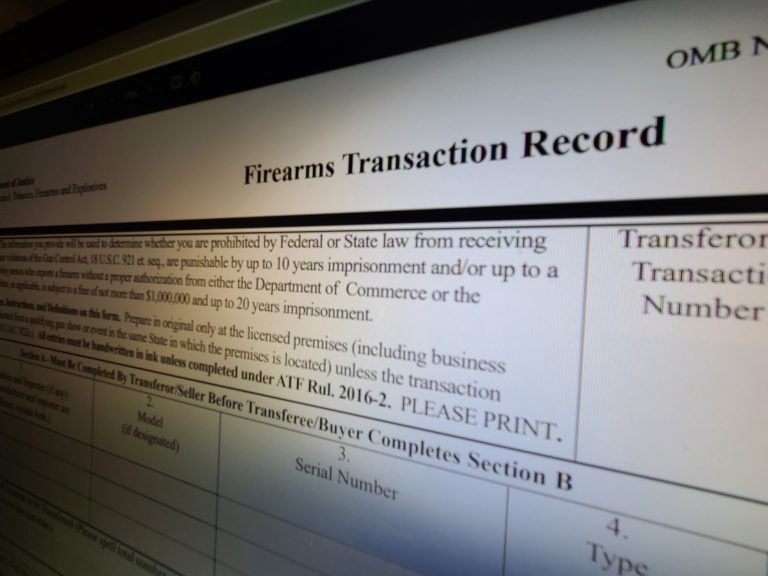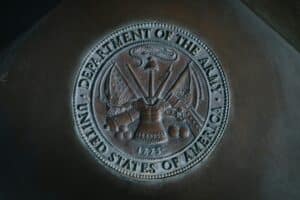A federal judge found the government liable for failures in the background check system that allowed the Sutherland Springs shooter to obtain his firearm.
United States District Judge Xavier Rodriguez ruled on Tuesday that the families of those killed in the Texas attack, which left 25 dead and 20 more injured, can be awarded damages from the government. He found members of Air Force leadership did not provide proper oversight for the process of transferring the shooter’s disqualifying criminal records to the gun background check system. That allowed the shooter to pass multiple background checks he would have failed if his records had been in the system.
“The Government failed to exercise reasonable care in its undertaking to submit criminal history to the FBI,” he wrote in the ruling. “The Government’s failure to exercise reasonable care increased the risk of physical harm to the general public, including Plaintiffs. And its failure proximately caused the deaths and injuries of Plaintiffs at the Sutherland Springs First Baptist Church on November 5, 2017.”
Judge Rodriguez found the government is 60 percent responsible for the harm suffered by the plaintiffs under the Federal Tort Claims Act and will have to pay restitution to families of the Sutherland Springs victims.
Experts said it was a first-of-its-kind ruling. David Kopel, a Second Amendment scholar with the Cato Institute, said it was the first time the government has been held liable for incompetent management of the gun background check system. Adam Winkler, a constitutional law professor at UCLA, called the ruling “surprising” and unprecedented.
Jake Charles, director of Duke University’s Center for Firearms Law, said the Sutherland Springs case is the first to result in a final ruling against the government, but it is unlikely to be the last.
“There have been similar suits that seek to hold the government accountable for failures in the background check process that result in this kind of harm, like the one arising from the Charleston shooting,” he told The Reload. “I’m not sure if I’ve seen one get through to the very end, but the [Charleston] case has gotten over what seem like some of the major initial hurdles.”
Families of the victims in the 2015 mass shooting at Mother Emanuel AME Church in Charleston, South Carolina, are also suing the government for their failure to identify that shooter’s pending drug possession charges that should have disqualified him from buying a gun. Then-director James Comey admitted the FBI made a “mistake” while investigating the Charleston shooter’s background and never finished the check, which allowed him to obtain and keep the gun used in the attack that left nine dead and one injured. The Fourth Circuit Court of Appeals ruled in 2019 the government is not immune from negligence claims similar to those in the Sutherland Springs case.
Winkler said the ruling “highlights the need for a much better system of background checks” than the current one—known as the National Instant Criminal Background Check System (NICS)—because it rests on the idea “that background checks, if done right, can prevent gun violence.” Congress agreed in 2018 when they passed the Fix NICS bill. Driven by the widespread failure of the military to submit criminal records to NICS, exemplified by the Sutherland Springs case, Congress passed a bill to increase punishments for states, federal agencies, and military branches that don’t submit required records.
They also added hundreds of millions of dollars in funding for the departments tasked with submitting the records. Judge Rodriguez determined lack of appropriate resources was one of the reasons the Air Force failed to transfer the Sutherland Springs shooter’s records to the FBI.
“[The agency in charge of the shooter’s case file] ‘had a pile of work,’ but ‘could not accomplish what needed to be accomplished’ because of the agents were so inexperienced,” he wrote in the ruling. “Agents worked ‘at least 12 hours a day’ and conducted 24-hour surveillance on ‘numerous, numerous occasions.’ [The commander] testified that agents brought sleeping bags into work because they did not know when they would be able to go home to sleep. They did not have enough time to accomplish all of their assigned duties—’there was a general complaint that they were overtasked.'”
But Judge Rodriguez said the lack of manpower was not an excuse for the failure by members of Air Force leadership to follow through on their duties.
“Leadership negligently supervised their agents in the collection, maintenance, and submission of [the shooter]’s fingerprints and criminal convictions to the FBI, and that their negligent supervision was a proximate cause of Plaintiffs’ injuries,” he said. “Despite his awareness that [the shooter] posed a risk of violence generally and gun violence specifically, [the commander] closed Kelley’s investigative file without confirming that [the shooter]’s fingerprints and final disposition report had been submitted to the FBI.”
The parties in the case will now have two weeks to present a plan to Judge Rodriguez for how to move forward on determining the individual damages in the case.







4 Responses
Wow! Where is this going to lead firearms policy?
That’s a difficult question. I’m not sure how much it will affect gun policy. It may create a greater incentive for government officials to carry out their duty to transfer criminal records into NICS. Otherwise, their budgets may take a hit from liability payments like this one.
We know where it will lead, longer allowed times for back ground checks. No auto approval after that time and increased false positive as that is a CYA move. Let be honest this is a loss for all gun owners, and we will be the only ones who suffer from it.
I don’t see any reason it would lead to those outcomes either. The ruling establishes the shooter could’ve been prevented from buying a gun under current laws but wasn’t purely due to negligence. None of the changes you mentioned would have accomplished anything in this case.
Certainly, there are people who advocate for extending the delay window because of Charleston even though that wouldn’t have changed anything in that case. But I haven’t seen gun-control advocates try to use Sutherland Springs as motivation for any changes to the background check system.